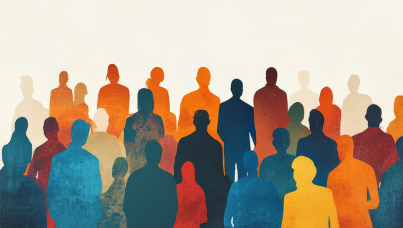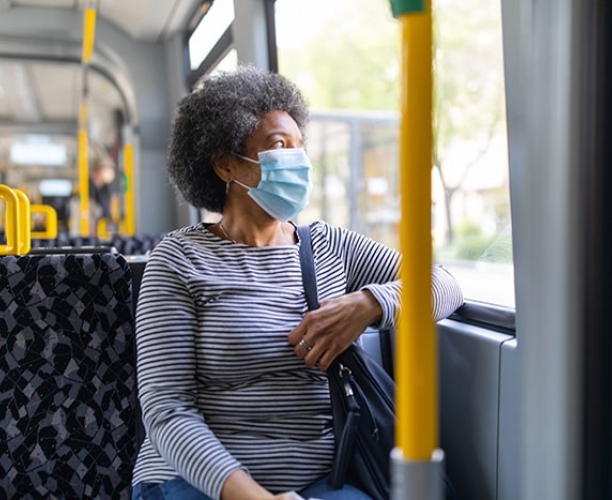

Women's Forum Barometer 2021: an urgent call for an inclusive recovery
DANISH VERSION →
In connection with the G7 Summit back in June 2021, Ipsos conducted a survey on behalf of Women’s Forum. The report highlights the importance of taking full measure of how and to what extent women have been affected by the pandemic and its socio-economic consequences.
To help the world fight, and then build back better from the coronavirus,
putting gender equality at the heart of the recovery is a must.
- Prime Minister Boris Johnson, said at the G7 summit in June 2021
The main lessons learned from the Women's Forum Barometer are:
1. The Covid crisis has had devastating effects for many men, but even more for women
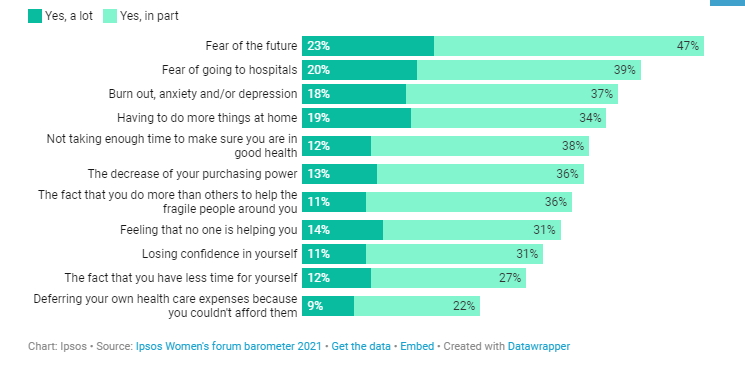
The populations of the G7 countries have been violently hit by the consequences of the pandemic. Italians especially have been traumatised by the cruelty of the consequences of Covid-19, and have been very strongly affected, both psychologically and economically.
- 79% say they experienced fear of the future - 75% of women compared to 65% of men
- 76% fear of going to hospitals
- 60% burnout, anxiety or depression
- 66% report a decrease in their purchasing power compared to 39% in the UK
Even if men have been strongly impacted by the pandemic and its consequences, women have been even more affected in many ways.
In the UK, the gap between women and men is even bigger. Here, 74% of British women are experiencing fear compared to 58% of British men.
Having children also has very different consequences for men and women: 47% of women with at least a child below 18 regularly feels exhausted, compared to 34% of fathers. With children below 6 years old, the gap is even bigger: 56% of mothers of young children feel regularly overwhelmed, compared to 34% of fathers of kids the same age.
Overall, 9% of women consider they will never fully recover economically, and 8% when it comes to their professional ambitions because there are some choices they made or opportunities they lost that will have a durable impact.
2. Stereotypes about the role and place of women in society are still widespread, making the risk of women’s withdrawal from the economic scene real
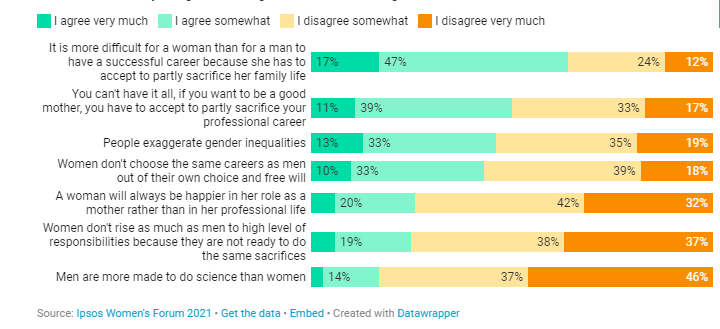
Traditional gender roles remain very vivid in the G7 countries, especially when it comes to the role of women and the confrontation between motherhood and career.
For many of those surveyed, they even mask the existence of gender inequalities and the mechanisms through which these inequalities are perpetuated:
- 48% of men, compared to 39% of women, believe that “women don’t choose the same careers as men out of their own choice and free will”
These traditional models are especially strong in Germany and in Japan where a clear division is still operated by many. However, it is much less in countries like France and Italy, where populations are rather well aware of gender inequalities and adverse to gender stereotypes.
3. Nationals of G7 countries agree that gender inequalities persist even in their countries and must be fought:
Almost all the people interviewed agree that gender inequalities exist to at least some extent and the majority thinks it is widespread. On a scale of 0 to 10 (0 meaning these inequalities are non-existent and 10 that they are extremely widespread), they rate the level of inequalities on average at 7/10 globally and 5.9/10 for the G7 countries.
Citizens of the G7 countries think that reducing gender inequalities should be considered a priority:
- 90% believe that closing the gender gap is something that is important
- 29% see it as an absolute priority (32% among women).
- 97% consider the shock of the pandemic will make this goal more difficult to attain, at least to some extent.
4. People are convinced that reducing gender inequalities would be for the common good
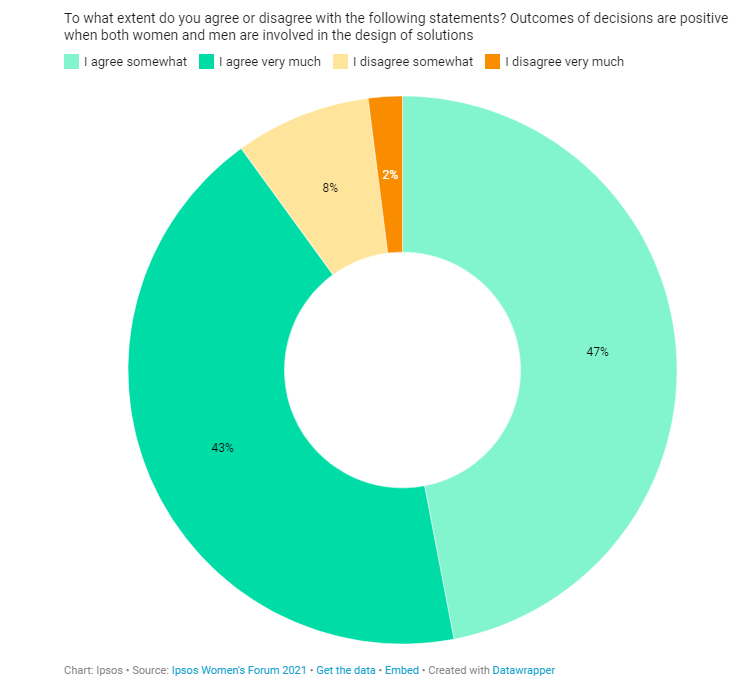
The vast majority of men and women report that ending gender inequalities would have positive consequences for all. A large majority (81% of women and 64% of men) believe that if women had the same opportunities as men, this would have positive consequences on overall wages. The proportion of men thinking it would have positive impacts has however slightly declined (-3 to -6 percentage points) compared to last year, as some of them might feel threatened in these unstable times, and therefore less likely to support the promotion of women.
When it comes to fighting climate change, G7 populations are also ready to support the green initiatives led by women - A good way to make things change since women have more often than men taken actions to be more sustainable.

